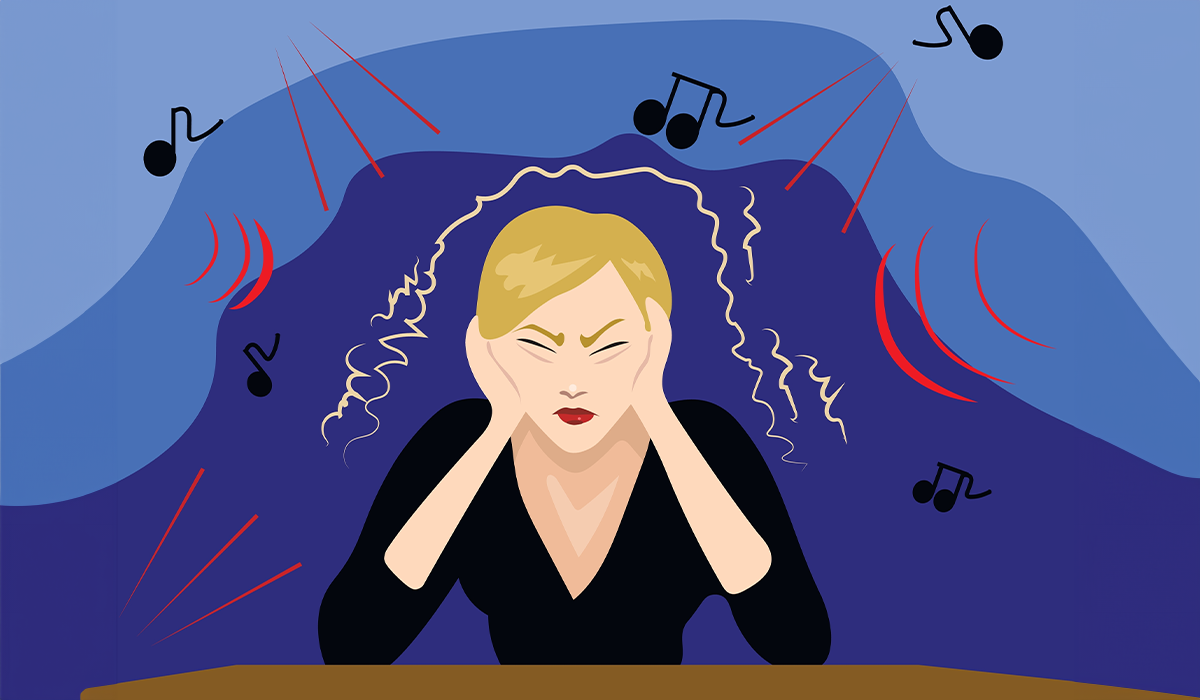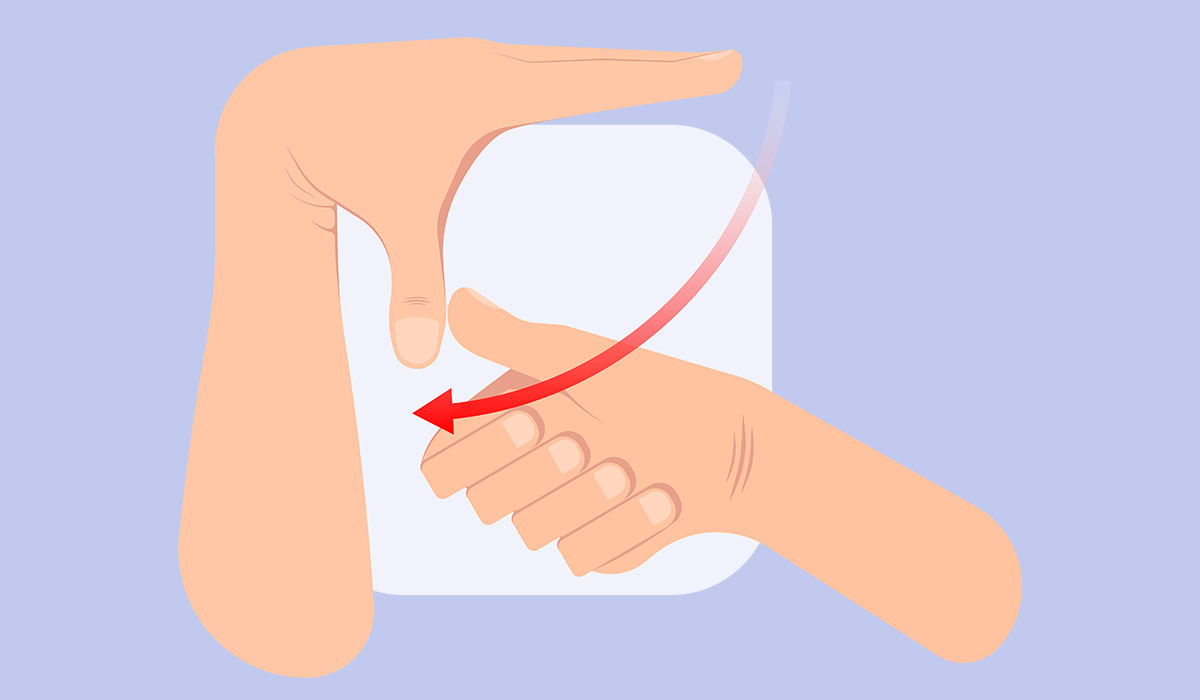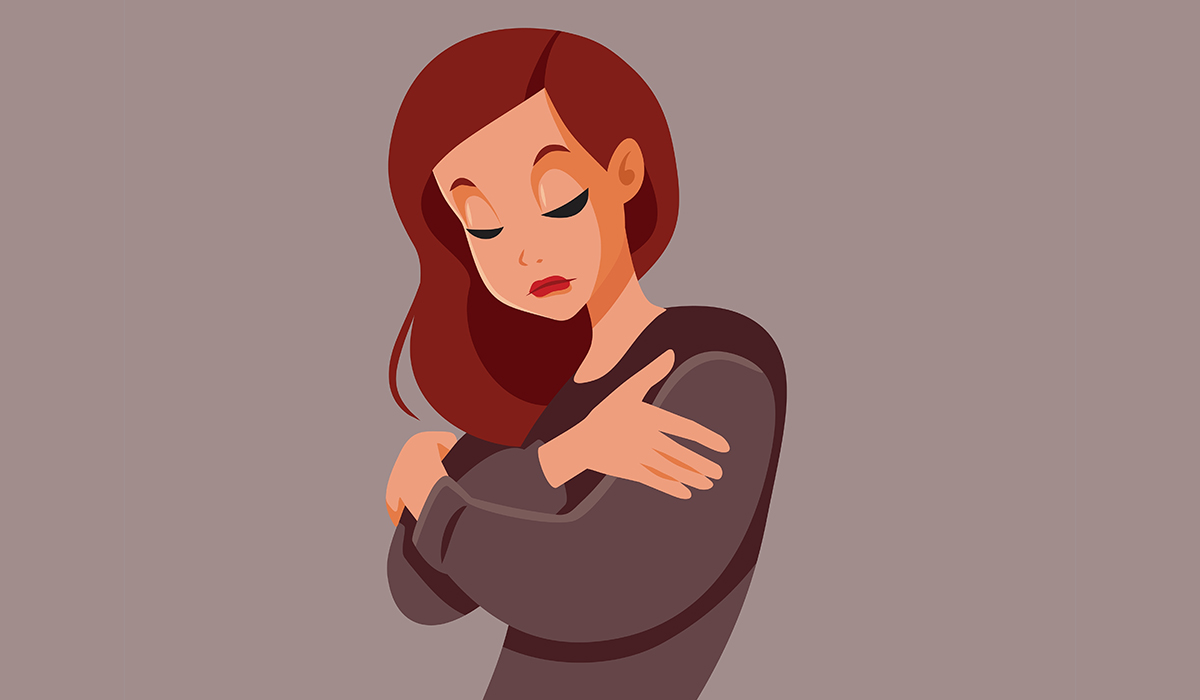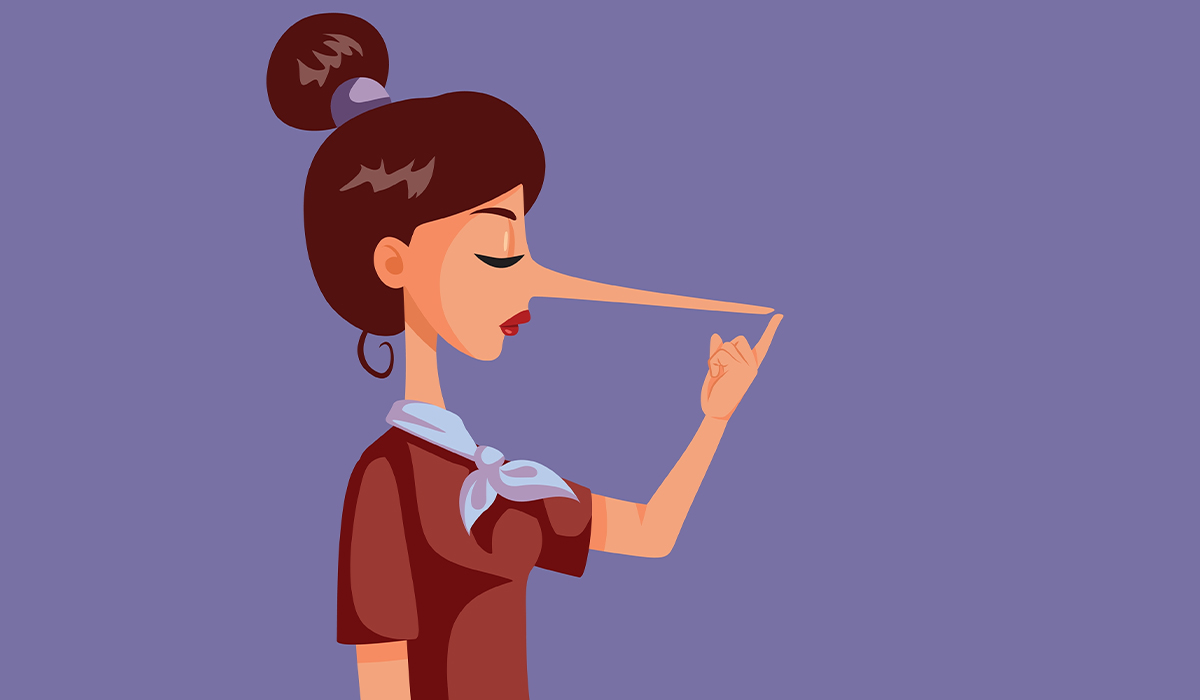Hypochondriacal disorders belong to the somatization group. In the scientific literature, we can find a definition according to which hypochondria is a persistent belief in an existing or impending disease despite the lack of medical justification.
Hypochondriacal disorders are characterized by anxiety about health. Patients are afraid of getting sick, often of a specific disease, or are convinced that they already suffer from one, even though they have no bodily basis. It is also characteristic that people suffering from hypochondria usually tend to observe their own bodies and experience symptoms, the interpretation of which leads to a belief in pathology.
Patients are afraid of diseases, which are always accompanied by anxiety and a constant search for evidence of the disease. Moreover, they also tend to analyze their test results, treating even the slightest deviations from the norm as confirmation of the disease. Additionally, people with the described disorder usually do not believe doctors who claim there are no grounds to diagnose a given condition.
Refusal of treatment by a specialist usually results in a visit to another specialist. Sick people usually eventually go to a psychologist for therapy, but this may not bring quick results due to the resistance of the patient, who denies its necessity. They often give up therapeutic interventions when they realize that, for example, they can convince the therapist of their beliefs about the disease.
Manifestation may worsen when doctors are too scrupulous in looking for the causes of the symptoms and ignore the patient's problems. Neurotic symptoms usually become more troublesome when the patient is accused of faking the disease.
A hypochondriac![]() focuses excessively on their health. They are characterized by intense anxiety about one's physical condition. Further, they incorrectly interpret pain and other symptoms inherent in the body's functioning.
focuses excessively on their health. They are characterized by intense anxiety about one's physical condition. Further, they incorrectly interpret pain and other symptoms inherent in the body's functioning.
A hypochondriac constantly seeks contact with a doctor because they continuously suspect that they have new somatic diseases. When they hear that they are healthy, they feel disappointed.

Delusional disorders![]() are usually weird, absurd claims about one's health. An observer from the side immediately realizes that the patient cannot be suffering from such a condition. These bizarre beliefs often explain the specific experiences the patient experiences. Delusional illnesses are symptoms of thinking disorders. The patient's beliefs, despite their nonsense and strangeness, even if they are in stark contrast to the facts.
are usually weird, absurd claims about one's health. An observer from the side immediately realizes that the patient cannot be suffering from such a condition. These bizarre beliefs often explain the specific experiences the patient experiences. Delusional illnesses are symptoms of thinking disorders. The patient's beliefs, despite their nonsense and strangeness, even if they are in stark contrast to the facts.
People suffering from phantom illnesses usually have specific personality traits – they are excessively suspicious, distrustful, and have a high level of hostility. They are often loners, avoid people, and cannot establish contacts. It is impossible to help such a person without the help of a specialist and treatment – the patient needs a connection with a psychiatrist because their strange thinking is accompanied by other mental disorders, e.g., typical of paranoid schizophrenia. Unfortunately, diseases caused by delusional thinking are difficult to treat. The system of beliefs developed by the patient has usually developed over the years and is sometimes very logically coherent.
Munchhausen syndrome![]() is a group of conditions that involve inducing somatic symptoms to convince medical staff of the need for hospitalization or even to perform a procedure or surgery. The patients with Munchhausen syndrome goal is to play the role of a sick person – they often have obsessive and masochistic tendencies.
is a group of conditions that involve inducing somatic symptoms to convince medical staff of the need for hospitalization or even to perform a procedure or surgery. The patients with Munchhausen syndrome goal is to play the role of a sick person – they often have obsessive and masochistic tendencies.
A dangerous type of disease is Munchhausen's syndrome, a situation in which a person suffering from this type of ailment wants to cause symptoms in loved ones at all costs to subject them to treatments.
Psychological traumas in childhood, including disturbances in closest relationships, are common determinants of this condition, but there is no specific cause![]() .
.
Hypochondria usually develops in introverted people and individuals that tend to suffer from depression![]() . The trigger for ailments is often the death or illness of a loved one. In such situations, poor mental well-being may cause several real somatic symptoms. These are real symptoms, not just a misinterpretation of healthy physiological reactions.
. The trigger for ailments is often the death or illness of a loved one. In such situations, poor mental well-being may cause several real somatic symptoms. These are real symptoms, not just a misinterpretation of healthy physiological reactions.
Other reasons may be deriving benefits and satisfaction from the interest of those around the patient (doctors, medical staff). They then feel important and cared for, so they look for situations in which their need for security and care from the environment will be met. Usually, the mechanism of this behavior is unconscious.
Other causes of the development of hypochondriasis are disturbances in the perception of one's body, mental instability – e.g., in transitional periods (puberty, menopause, body aging), and lack of life satisfaction (bitterness, depression).
The essence of diagnosing hypochondria is that the patient believes in the presence of at least one severe somatic disease, i.e., one affecting the body. To be diagnosed with hypochondria, this belief must persist for at least six months.
A hypochondriac is not always a patient who constantly stays in hospitals or private offices. Some patients believe they have a severe disease and deliberately avoid visits to the doctor. This group is also particularly susceptible to the so-called white coat syndrome. Its essence is best illustrated by testing blood pressure in the presence of a doctor. The patient is so nervous about the test and the possibility of an incorrect result that their blood pressure increases.
Diagnosing a hypochondriac is very difficult. It is preceded by a lot of research, which leads to a kind of vicious circle. To locate the source of the hypochondriac's pain, the doctor recommends conducting detailed tests. As a result, the patient, noticing the doctor's concern, becomes sure that they are seriously ill. Such behavior leads to the perpetuation of hypochondria as an iatrogenic disorder – one caused by treatment.
Patients often look for the causes of ailments on the Internet. It turns out that there are so many people who search the Internet in search of diseases they may potentially suffer from that the phenomenon has already gained a separate name. It is cyberchondria![]() classified as a specific type of hypochondria. The patient carefully reviews the description of the disease and the characteristics of its symptoms and comes to the doctor with a ready-made medical diagnosis.
classified as a specific type of hypochondria. The patient carefully reviews the description of the disease and the characteristics of its symptoms and comes to the doctor with a ready-made medical diagnosis.

It means that hypochondriacs are often subjected to tests they do not require, such as colonoscopy. When a doctor encounters a new patient, they have no reason to suspect hypochondria and must eliminate other possibilities before discovering that they are dealing with a person who suffers from a mental disorder.
The lack of specific information about what is wrong with the patient makes them want to undergo tests at all costs and explain the cause of their ailments. Diagnosing the disease becomes the goal of all actions. The longer a hypochondriac does not know the cause of their condition, the more anxiety they feel. Then hypochondriac's concentration on their body becomes greater and greater.
In the DSM 5 classification![]() , hypochondriacal disorders are placed in the section about disorders with somatic symptoms and others related to them, next to, among others, conversion disorders, mental factors influencing another general medical condition, or factitious disorders. They were defined as health anxiety disorders and the following diagnosis criteria were formulated:
, hypochondriacal disorders are placed in the section about disorders with somatic symptoms and others related to them, next to, among others, conversion disorders, mental factors influencing another general medical condition, or factitious disorders. They were defined as health anxiety disorders and the following diagnosis criteria were formulated:
Once a disorder is diagnosed, the specialist usually also determines whether we are dealing with a help-seeking condition – frequently seeking medical help, visiting a doctor, undergoing diagnostic tests and treatment procedures, or a help-avoidant disorder – rarely seeking medical help.
Of course, you can live with hypochondria, but it is worth treating.
Hypochondriac![]() is worried about their health, constantly monitors it, and often complains about various ailments that they may feel but which from a medical point of view have a neurotic (psychosomatic) basis. Often, a patient with an undiagnosed neurosis cannot find an answer anywhere to determine the cause of the ailment. Therefore, a hypochondriac is usually an unhappy person and tends to project their failures in diverse spheres of life and depressive states onto somatic conditions concentrated in various parts of the body.
is worried about their health, constantly monitors it, and often complains about various ailments that they may feel but which from a medical point of view have a neurotic (psychosomatic) basis. Often, a patient with an undiagnosed neurosis cannot find an answer anywhere to determine the cause of the ailment. Therefore, a hypochondriac is usually an unhappy person and tends to project their failures in diverse spheres of life and depressive states onto somatic conditions concentrated in various parts of the body.
Most hypochondriacs are not aware of this process and feel painful symptoms located in a specific area of the body or some organ. They visit the doctor frequently and perform many tests to determine the cause of a given ailment while feeling fear and anxiety. Even if tests show that everything is fine with a given organ or body function, the patient is convinced that there may always be another, hidden, even more serious cause of the ailment. Doctors usually, in response to the patient's constant complaints of pain and discomfort, order extended diagnostics – the hypochondriac takes this as confirmation of their belief that they are seriously ill but the diagnosis has not yet been made.
In this vicious circle, the doctor begins to feel that the patient has come not to feel better but to happily make sure they are sick. A hypochondriac usually talks vividly and in detail about their symptoms and they are medically educated. It exaggerates and excessively highlights the signs that confirm the diagnosis of the disease. They encourage the doctor to perform as many tests as possible and often invest in expensive diagnostics.
When, after carrying out the necessary analyses, measurements, tests, etc., it turns out that there is nothing wrong with the hypochondriac, they feel disappointed. A hypochondriac often believes that the tests were performed poorly and that the doctor was incompetent. And it usually ends with the search for a new specialist. A hypochondriac does not accept the diagnosis because it deprives them of what allows them to function emotionally (albeit pathologically, but efficiently) – masking the authentic source of problems with hypochondria.
In the treatment of a hypochondriac, the most important thing is to distract the patient from their ailments. By talking about non-health topics, the psychotherapist can better understand the patient and the potential condition causes.
Hypochondriacs often encounter misunderstandings from their surroundings and doctors. On the other hand, the disease allows them to escape from the problems of everyday life and effectively arouse the sympathy of others. Becoming aware of the mechanisms governing hypochondriacal neurosis is necessary to overcome this disease. Then symptoms of neurosis may disappear.
However, the treatment of hypochondria is complicated by the belief that the symptoms result from a disease of the body, and therefore suggestions about the need for individual psychotherapy![]() or a conversation with a psychiatrist are often unacceptable. Moreover, the behavior of a hypochondriac, although socially unacceptable, helps the patient maintain a particular type of mental balance.
or a conversation with a psychiatrist are often unacceptable. Moreover, the behavior of a hypochondriac, although socially unacceptable, helps the patient maintain a particular type of mental balance.

Attempts to remove the causes of their ailments are perceived as an attempt to disturb this balance. A hypochondriac often feels better in an environment of sick people – keenly interested in their condition. Any attempt to draw attention to a hypochondriac's egocentrism or tendency to exaggerate health problems may result in emotional blackmail. The situation leads to a vicious circle – a hypochondriac may, over time, cut off contact with anyone who suggests visiting a psychologist or even perceive such a suggestion as an attack – and at the same time strengthen relationships with people who experience their subsequent “illnesses” with them.
Dealing with someone suffering from hypochondriacal disorder is not easy. Their behavior lasting for a long time may be bothersome to the surroundings. The best solution is to listen to the patient with empathy and not engage in endless discussions about health or surrounding dangers.
It is worth paying attention to other topics, engaging issues of the surrounding world, and redirecting the matter of the conversation, e.g., to one related to a hobby of the sick person. However, if they return to the conversation about health anxiety, it is worth using arguments that will appeal to them. For example, you can say “Our family is genetically very healthy, so you are not predisposed to a given disease” or “Currently medicine is at a very high level, drugs are becoming more and more modern and the research is more precise”.
Moreover, the patient usually benefits from a kind of privilege – the rest of the family is focused on them and their health condition. However, remember to also take care of yourself. Do not allow constant contact with the patient at the expense of your free time.
Above all, let's remember: let's do everything to get the patient to see a psychologist who will help them solve the problem. Such a conversation requires empathy and patience. We can recall, for example, a person from our surroundings who is already undergoing treatment with a specialist and is making progress and feeling better.
Table of Contents

Misophonia is an inappropriately strong reaction to specific sounds. It occurs in many disorders. Learn about the meaning of misophonia… read more »

Ehlers-Danlos Syndrome is a group of diseases with a genetic basis. Learn all the symptoms associated with EDS. Find out… read more »

Anxiety is an an emotional state characterized by a sense of insecurity and undefined discomfort. Check out, what are its… read more »

Anxiety is characterized by persistent worry and fear that are more intense that they would normally be. What are its… read more »

Bipolar disorder is a mental disorder characterized by the alternation of extremely different mental states – depression and mania. What… read more »

Dysmorphia is a mental disorder associated with a negative body image. It is a common problem these days. Learn how… read more »

Munchausen Syndrome is a psychological disorder where an individual deliberately exaggerates, fabricates, or induces physical or psychological symptoms in themselves.… read more »

Agoraphobia is a type of phobia, that is, it belongs to the group of anxiety disorders. It's a very strong… read more »

Chest pain refers to any discomfort, pressure, tightness, or pain that occurs in the chest area. It can vary in… read more »